 |
|||||||||




 |
|||||||||




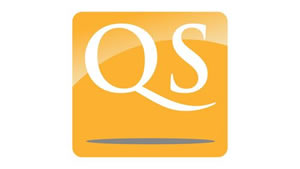
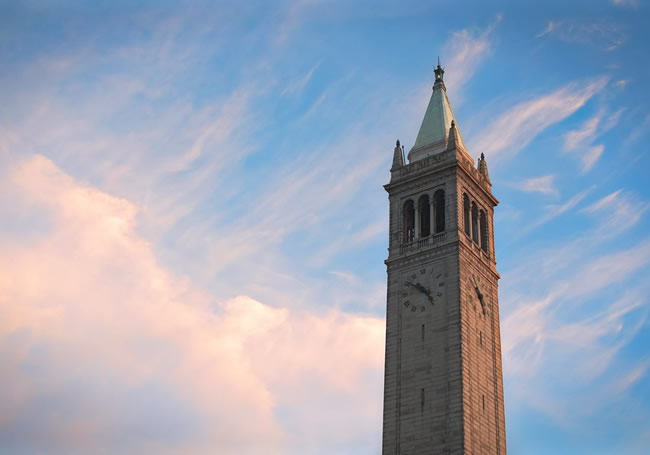
Photo: Sather Tower, University of California, Berkeley. Image Credit: Daniel Parks.
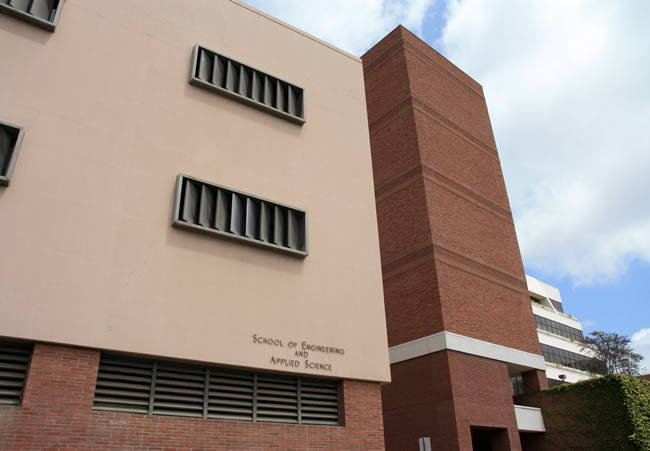
Photo: A building at UCLA campus. Image Credit: Yoshi Huang.
LONDON, May 6, 2021 — Offering unique insight into diversity drives, research excellence, and employability enhancement, QS Quacquarelli Symonds - recognized internationally for their QS World University Rankings portfolio - released their second annual list of America’s top universities. Harvard University remains the national number-one.
The focus on Diversity provides students with information about which universities are doing most to reduce sectoral gender and racial inequities. The University of California Davis and New York University jointly lead in the Diversity indicator.
Only six of the top-20 universities also achieve a top-20 score for Diversity & Internationalization.
Among the Top-100, the highest student ethnic diversity institutions are UC Riverside, UC Irvine, and the University of Hawaii at Manoa.
All bar one of the top-10 for Student Ethnicity Mix is a public university, indicating that public universities are meeting their social obligations to increase Diversity.
Among the Top-100, the institutions with the highest proportion of female staff are liberal arts colleges - Barnard College and Wellesley College, with over 60% female academic staff.
Some of America’s top research institutions perform less strongly in gender diversity. MIT, scoring third for Research, has only 28% female staff, and Stanford (second for Research) only records 35% of its staff as female.
QS’s data shows that tech-focused institutions still lag behind their peers in terms of widening female workforce participation. Among the ranking’s top 100, the institutions with the lowest ratio of female to male staff are Caltech, New Jersey Institute of Technology, Rensselaer Institute of Technology, and MIT.
The QS USA University Rankings also prioritizes employability and teaching quality as crucial lenses to assess institutional performance.
Jack Moran, a QS Spokesperson, said: “While the overall QS World University Rankings continue to command record levels of interest, we know that the American higher education sector is wrestling with questions that do not fall within the scope of our global rankings - questions of equity, access, representation, and social justice. The QS USA University Rankings shine some independent light on those institutions that are doing most to foster the important relationship between education and social change.”
Containing more than 350 universities, this year’s QS USA Rankings is the largest yet. New York state leads as the most represented state, with 74 universities. California is the next best-performing with 38.
Public universities continue to perform strongly, with two places in this year’s top five and seven in the top 30. If you’re looking to take advantage of the benefits of studying at a public university, any of these institutions would be worth considering.
QS USA University Rankings 2021
• Top 100
• 101-110
• 111-120
• 121-130
• 131-140
• 141-150
• 151-160
• 161-170
• 171-180
• 181-190
• 191-200
• 201-250
• 251-300
• 301-350
— METHODOLOGY —
QS evaluated the US universities according to the following 17 metrics. They fall into four broad groupings (Employability, Diversity & Internationalisation, Learning Experience, and Research).
• Employability (24.5%)
• Employer reputation (10%)
• Alumni outcomes (10%)
• Salary after ten years (4.5%)
• Diversity & Internationalisation (25%)
• Gender pay gap (2.5%)
• Faculty gender diversity (2.5%)
• The ratio of undergraduate students receiving Pell grants (5%)
• Students’ ethnicity mix (5%)
• Number of Fulbright recipients per institution (5%)
• The proportion of international students (5%)
• Learning experience (22%)
• Average instructional expenditure per FTE (full-time equivalency) student (10%)
• Retention rate (5%)
• Pell grant student graduation rates compared with other students (3.5%)
• Student-faculty ratio (3.5%)
• Research (28.5%)
• Academic Reputation (13.5%)
• Citations per paper (7%)
• International Research Network (IRN) (5%)
• Partnerships with Employers per Faculty (3%)
Source: QS Quacquarelli Symonds
|GlobalGiants.Com|
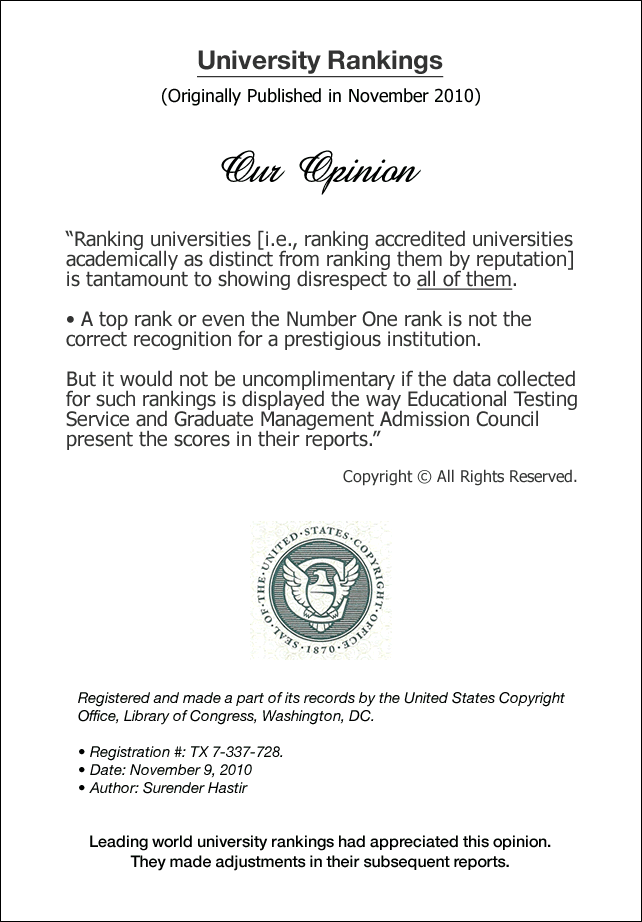
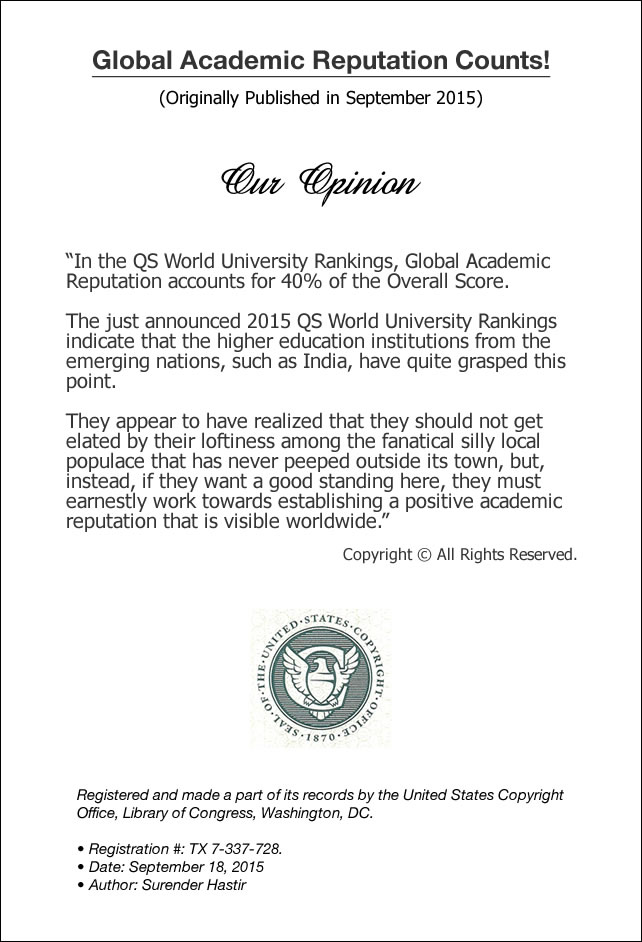
Edited & Posted by the Editor | 3:48 PM | View the original post
Give. Advocate. Volunteer. LIVE UNITED.
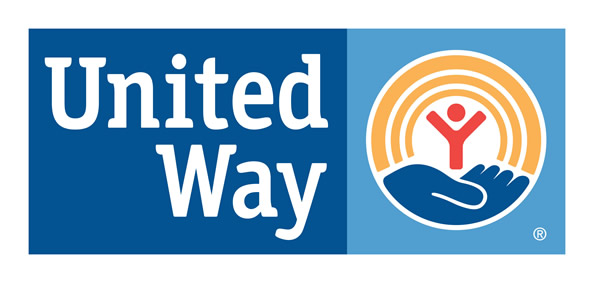
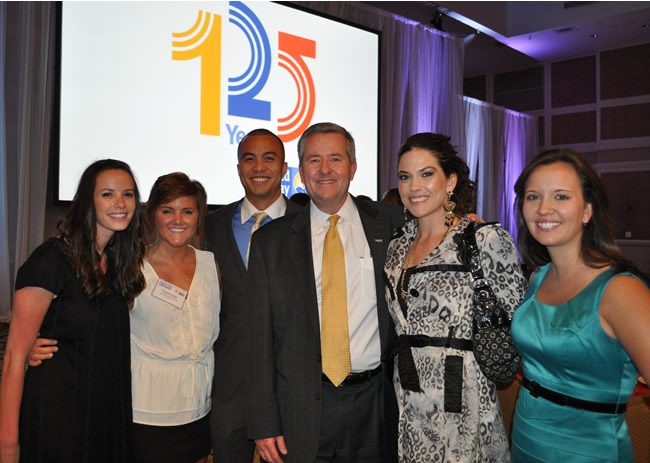
Photo: Brian Gallagher, President and CEO of United Way Worldwide (center) with Student United Way Award Winners (L-R): Alicia Meyer, Campus Adviser of the Year, Montana State University; Krystal Draper, University of Mary Hardin-Baylor; Hoa Bui, President of Student United Way at the University of California Riverside; Caasi Algazi, Founder of Student United Way at the University of California Riverside; and Elizabeth Collins, Student Leader of the Year, Montana State University. United Way Community Leaders Conference, Nashville, Tennessee. May 2, 2012.
Students on more than 60 campuses across the United States are improving their local communities. This powerful force is known as Student United Way, the student voice of the worldwide United Way movement. Image Credit: Neil Parekh. [File Photo]
ALEXANDRIA, VA., May 01, 2021 — United Way Worldwide today announced that it had established a relief fund for United Way India to provide immediate assistance in containing the coronavirus and responding to the unprecedented surge in COVID-19 cases and hospitalizations. The India COVID-19 Relief Fund will provide immediate help in medical equipment for hospitals, including oxygen supplies, ventilators, beds, Bipap Machines, and more. The Fund will also supply hygiene and food kits for communities to prevent further spread of the virus.
As India experiences the world’s worst outbreak, United Way India will distribute donations from the Fund to support the most acutely impacted in the states of Maharashtra, Gujarat, Delhi NCR, Uttarakhand, Karnataka, Tamil Nadu, Kerala, Andhra Pradesh, West Bengal, Odisha, and Bihar.
Just this week, India reported the most significant single-day spike of new COVID-19 cases at 379,000 and more than 200,000 deaths, 3,000 occurring in the past 24 hours alone. These numbers have overwhelmed the healthcare system, particularly in highly populated cities, devastating the most vulnerable population.
“The resurgence of the COVID-19 virus and the devastating impact on India’s healthcare system highlights that the fight against the pandemic is far from over and shows how vulnerable communities are still at risk,” said Neeraj Mehta, Interim President and CEO, United Way Worldwide. “I am heartened by the work of the United Way India network and am confident that we can provide much-needed critical support to alleviate the suffering of marginalized populations.”
Over the past year, the United Way India network of seven local United Ways has supported more than five million people affected by the COVID-19 pandemic and provided infrastructure enhancement to more than 100 hospitals. The United Way India network has raised and distributed $60 million in relief funds to more than 60 cities throughout India.
Through the work of 100,000 volunteers, United Way has distributed over 291,951 food kits and served more than 555,886 hot meals. Additionally, the United Way India network has provided 146 hospitals with infrastructure reinforcements, including additional beds, oxygen concentrators, ventilators, and medical supplies. It has also distributed 804,154 N-95 & 3-Ply masks and 346,104 personal protection equipment (PPE) kits.
Response efforts are led locally by United Ways in the cities of Baroda, Mumbai, Delhi, Bengaluru, Hyderabad, Chennai, and Kolkata.
United Way said it fights for every person’s health, education, and financial stability in every community.”With global reach and local impact, we’re making life better for 48 million people annually. United Way is the world’s largest privately-funded nonprofit, working in 95% of U.S. communities and 40 countries and territories. That’s why we’re the mission of choice for 2.5 million volunteers, 7.7 million donors, and 45,000 corporate partners. In the wake of COVID-19, we’re helping people stay in their homes, stock their pantries, and protect their lives and livelihoods. And we’re working to build resilient, equitable communities,” United Way elaborated.
Source: United Way Worldwide
|GlobalGiants.Com|
Edited & Posted by the Editor | 3:04 PM | View the original post
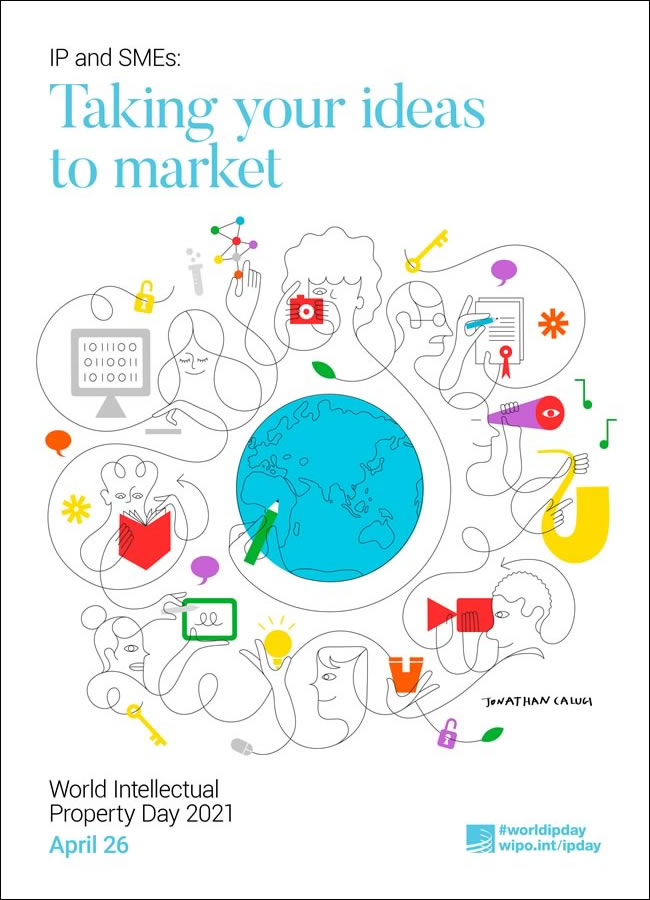
Geneva, April 29, 2021 — Small and medium-sized enterprises take center stage at this year’s celebration of World Intellectual Property Day. WIPO Director General Daren Tang described them as the “unsung heroes” of the global economy and an engine for growth in a post-pandemic world.
In a video message celebrating World IP Day, which occurs each April 26, Mr. Tang said that SMEs account for 90% of all companies worldwide and 70% of global employment. That’s why World IP Day 2021 is carrying the theme “IP and SMEs: Taking your ideas to market.”
“SMEs are the engines, the unsung heroes of our economy. And yet for many of them, there is still a lack of knowledge about how IP can help them translate their ideas into products, and how IP can be a powerful tool for them not just to survive, but also to compete and grow,” he said.
“SMEs face different challenges in different parts of the world, and how we help them will need to be customized to the needs of your part of the world. But it will be a powerful message for us to send the signal that together we will be supporting them,” said Mr. Tang.
Mr. Tang, who took office as WIPO’s Director-General in October 2020, has made supporting smaller enterprises a priority. In one of his first actions as Director-General, he established the “IP and Innovation Ecosystems Sector” as one of the Organization’s eight sectors, with a remit to support SMEs, entrepreneurs, and researchers in commercializing IP and using it for business growth.
“Whatever help we can render to our SMEs will help that we render to the bedrock of your economy and the backbone of the global economy. Ultimately, it will help our world to build back better,” after the COVID-19 pandemic, he said.
WIPO is coordinating a global campaign to highlight the importance of intangible assets to SMEs and the value of IP in supporting SMEs to grow. The Organization has published a series of case studies worldwide telling stories of SMEs that are using IP rights to turn ideas into business opportunities and generate value. WIPO has also provided a wealth of practical information on the best ways for SMEs to protect their intangible assets.
In 2000, WIPO’s member states designated April 26 - the day on which the WIPO Convention came into force in 1970 - as World Intellectual Property Day to increase general understanding of intellectual property (IP). Since then, World IP Day has offered a unique opportunity each year to join with others worldwide to consider how IP contributes to the flourishing of music and the arts and to driving the technological innovation that helps shape our world.
The World Intellectual Property Organization (WIPO) is the global forum for intellectual property policy, services, information, and cooperation. A specialized agency of the United Nations, WIPO assists its 193 member states in developing a balanced international IP legal framework to meet society’s evolving needs. It provides business services for obtaining IP rights in multiple countries and resolving disputes. It delivers capacity-building programs to help developing countries benefit from using IP. And it offers free access to unique knowledge banks of IP information.
Source: WIPO, Geneva
|GlobalGiants.Com|
(The Editor is an Alumnus of the World Intellectual Property Organization Academy (WIPO Academy), Geneva, Switzerland.)
Edited & Posted by the Editor | 2:49 PM | View the original post
• $5.2 million in philanthropic support for significant scholarly research in the social sciences and humanities
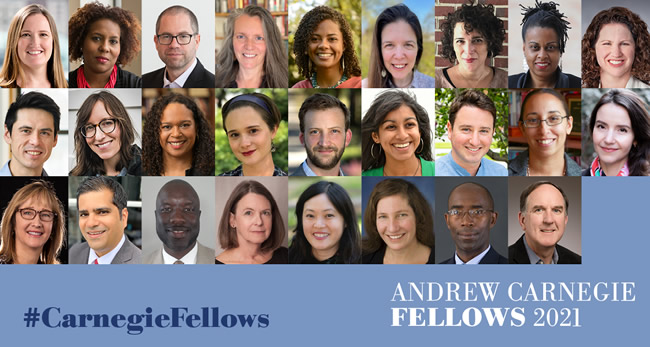
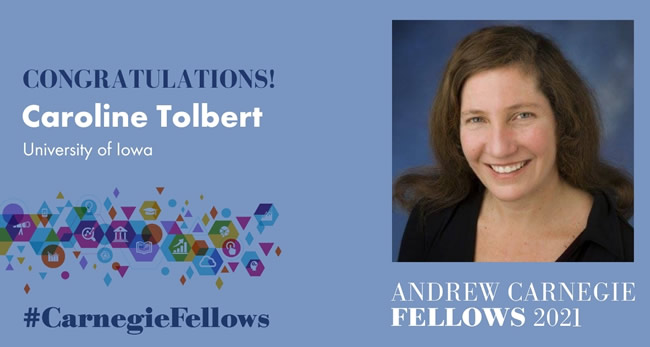
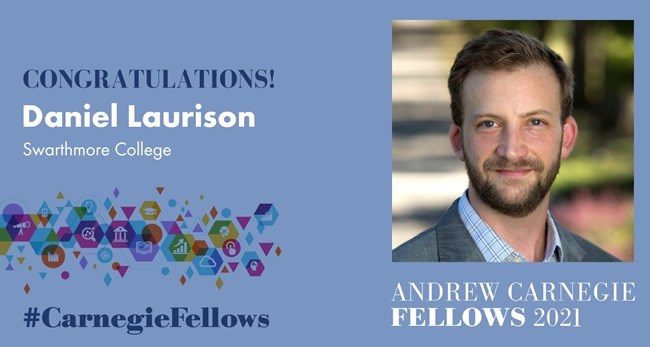
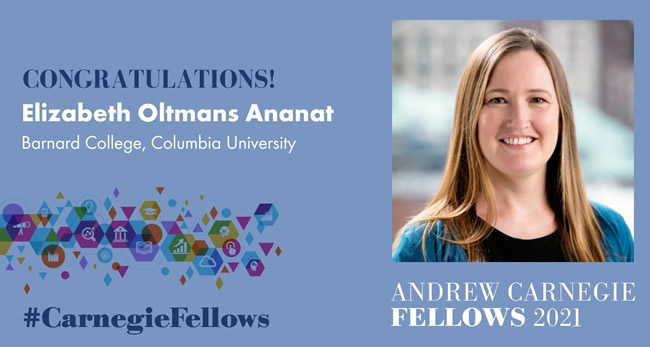
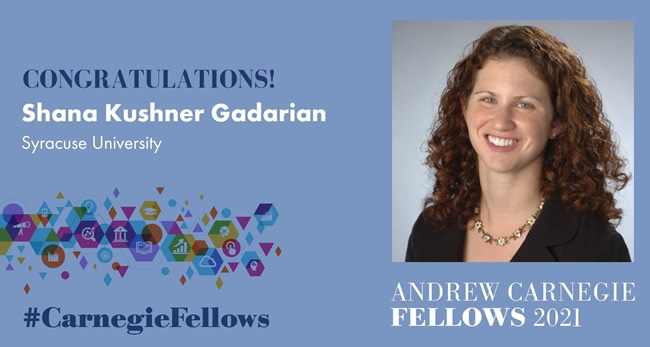
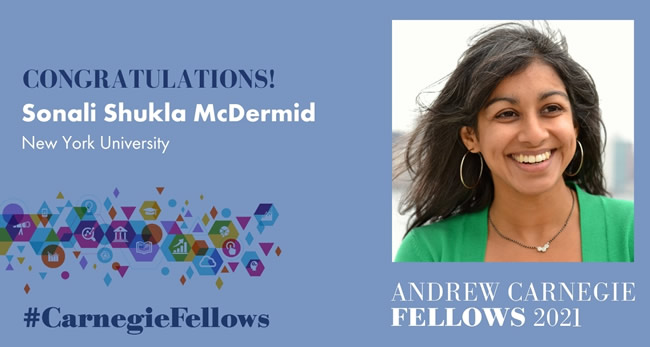
New York, NY, April 28, 2021 — To apply scholarly perspectives to some of society’s most important issues, Carnegie Corporation of New York today announced the 2021 class of Andrew Carnegie Fellows. The philanthropic foundation will grant each fellow $200,000 to fund significant research and writing in the social sciences and humanities that address critical and enduring issues confronting our society.
The Corporation launched the Andrew Carnegie Fellows Program in 2015 as an initiative conceived by the late Vartan Gregorian, who was president of the foundation since 1997. Gregorian, a former professor of history and past president of Brown University, aimed to advance and elevate the fellows’ work to reinforce the importance of the social sciences and humanities in academia and American life.
The most generous stipend of its kind, the Andrew Carnegie Fellows Program has funded a total of 216 scholars, journalists, and authors, representing an investment of $43.2 million. It focuses on subjects such as U.S. democracy, the environment, technological and cultural evolution, and international relations. The criteria prioritize the originality and promise of the research, its potential impact on the field, and the scholar’s plans for communicating the findings to a broad audience.
Among this year’s winning research topics:
Law enforcement: developing tools to analyze policing data, including large volumes of body-worn camera video, to monitor racial bias and suggest evidence-based reforms.
Pandemic recovery: studying the impact of COVID-19 on vulnerable families and women in the workforce to identify policies that will help rebuild a more just society.
Voting access: analyzing strategies to modernize the U.S. electoral system, including mail voting, same-day registration, and calls for a National Accessible Election law.
Racial justice: telling the story of mid-19th-century Black New Yorkers who campaigned to desegregate public transit with pioneering civil disobedience strategies.
Rural opportunity: exploring the history of agricultural property law and the views of American farmers to develop a more inclusive and sustainable land ownership system.
“Me Too” movement: documenting the cultural history of the campaign and social media’s ability to expose offenders and hold them accountable.
Immigration: exploring the immigration detention system and its multiple, unseen sites within and outside U.S. borders to understand policies and their impact on migrants.
Climate-change: developing inclusive approaches to climate policy by gathering indigenous knowledge.
Georgetown’s DeGioia, who has been a member of the jury since the start of the program, replaced the founding chair, Susan Hockfield, professor of neuroscience and president emerita of the Massachusetts Institute of Technology. In addition, Alondra Nelson, president of the Social Science Research Council, stepped down after three years of service on the fellows’ jury when she joined the White House Office of Science and Technology Policy as deputy director for science and society. Today, the jury comprises 14 distinguished scholars and academic and intellectual leaders from some of the USA’s most prominent educational institutions, foundations, and scholarly societies.
Carnegie Corporation selected this year’s class of 26 fellows from 311 nominations. The group comprises 18 women and eight men. The program seeks to include emerging and established scholars from across the country and represents public institutions of higher education and private colleges or universities.
As part of the nomination process, 700 individuals — including heads of independent research institutes, societies, and think tanks; university presidents; directors of major university presses; and editors of leading newspapers and magazines — were invited to recommend up to two individuals. All proposals undergo a preliminary, anonymous evaluation by leading authorities in the relevant fields. The top recommendations are then forwarded to the jury for a final review and selection.
The award is for up to two years, and its expected result is a book or major study.
• Class of 2021
• Andrew Carnegie Fellows Program Jurors
Carnegie Corporation of New York was established in 1911 by Andrew Carnegie to promote the advancement and diffusion of knowledge and understanding. In keeping with this mandate, the Corporation’s work focuses on the issues that Andrew Carnegie considered to be of paramount importance: education, international peace, and a strong democracy.
Source: Carnegie Corporation of New York
|GlobalGiants.Com|
Edited & Posted by the Editor | 5:28 AM | View the original post
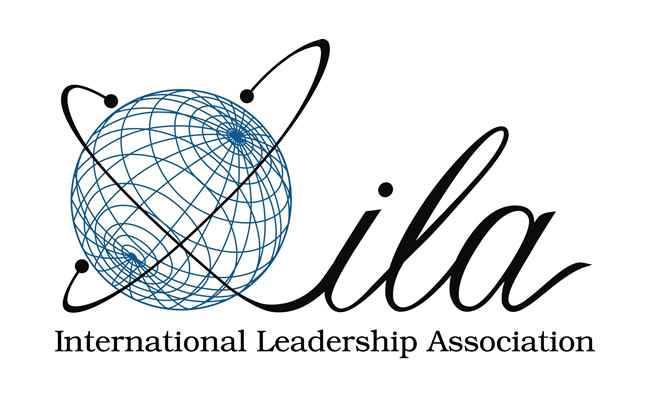
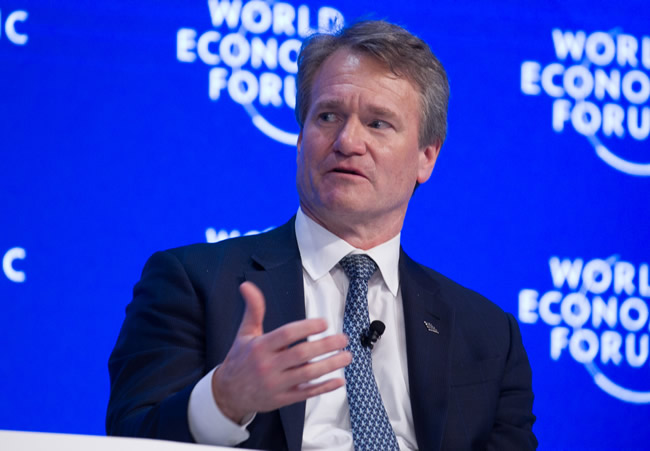
Photo: Responsive and Responsible Leadership. Brian T. Moynihan, Chairman of the Board and Chief Executive Officer, Bank of America Corporation, USA, speaking during the session: Responsive and Responsible Leadership at the Annual Meeting of the World Economic Forum in Davos, January 20, 2017. Image provided by & Copyright © World Economic Forum / Greg Beadle. [File Photo]
SILVER SPRING, Md., April 27, 2021 — The International Leadership Association (ILA) work is made possible by the power of its members’ curiosity, creativity, and desire to make an impact. Each year, it recognizes a select group of expert members who desire to give back to the field of leadership as ILA Fellows.
Fellows engage with ILA’s mission across sectors and disciplines to do worthy work at the intersection of leadership research and practice. They contribute to special initiatives that help drive the ILA’s mission to advance leadership knowledge and practice for a better world.
This year’s Fellows include the new Fellow roles of Executive in Residence and Scholar in Residence
ILA Executive in Residence
ILA Scholar in Residence
ILA Fellows
ILA’s 2021-2022 Fellows include thought leaders from around the world. Together they will share their knowledge and expertise, explore today’s challenges in dialogue with other leaders, and apply their practical wisdom to inform and inspire. They are:
Maureen Metcalf, returning for another term as an ILA Fellow, will continue her partnership with ILA to produce a series of 12+ podcasts on global leadership, part of her weekly Innovating Leadership show. The ILA adds another podcaster to its Fellows group with Scott Allen, the host of Phronesis: Practical Wisdom for Leadership. Scott will work with ILA to produce weekly episodes of Phronesis under the banner of “ILA’s official podcast.” Scott shared his excitement for the partnership, writing: “ILA has played a central role in my growth and development as a leadership educator and scholar. I have moderated the listserv, chaired a member community, and served on the board. As an ILA Fellow, I’ll have the opportunity to engage in a new and exciting way! I am thrilled to partner with ILA to bring inspirational and thought-provoking content to people all over the globe.”
ILA Fellows, Keith Grint, Stella Nkomo, Erwin Schwella, and Katherine Tyler Scott will share their insights via blogs looking at the challenges of today through a leadership lens. Grint, Schwella, and Tyler Scott are experienced bloggers, having contributed several pieces to ILA’s blog in 2020 including, “Leadership in Times of Crisis,” “The Fire Next Time,” and “The Global Pandemic: A Trigger for Deeply Systemic Disruptive Social Innovation? Or an Inevitable Global Apocalypse?” Echoing other fellows, Katherine affirmed that “ILA has been instrumental in my professional development, leadership, and service as a scholar-practitioner. I have been privileged to serve as Chair of Leadership Development, Conference Weaver, Vice-Chair and Chair of the ILA Board.” She added, “The honor of being selected as an ILA Fellow is another opportunity to contribute to this special community of learners.”
“We are thrilled to be working with this year’s group of outstanding Fellows,” noted Cynthia Cherrey, CEO & President of the ILA. “Their commitment to ILA and contributions to the field of leadership are unparalleled and will be appreciated for years to come.”
The International Leadership Association is a worldwide professional association committed to advancing leadership knowledge and practice for a better world. It accomplishes its mission by creating trusted leadership resources. The synergy that occurs by bringing people together in the charged space of its conferences and events produces a multiplier impact on leadership and change. For more than twenty years, the ILA has convened extraordinary talent across sectors, cultures, disciplines, and generations.
Source: International Leadership Association
|GlobalGiants.Com|
— The Editor is a Member of the International Leadership Association.
Edited & Posted by the Editor | 1:27 PM | View the original post
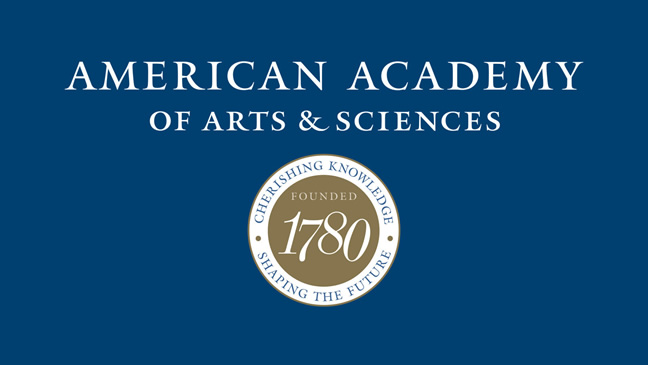
CAMBRIDGE, Mass., April 22, 2021 — The American Academy of Arts & Sciences announced today the election of 252 new members.
The Academy was established in 1780 by the country’s founders to guide a young nation that would face challenges and need expertise and excellence to emerge stronger. While the founders did not anticipate a year with a historic pandemic, overdue racial reckoning, and political strife, the purpose of electing new members is more compelling than ever, the Academy stated.
The 2021 election provides an opportunity to recognize extraordinary people across America and worldwide who help solve the world’s most urgent challenges, create meaning through art, and contribute to the common good from every field, discipline, and profession.
“We are honoring the excellence of these individuals, celebrating what they have achieved so far, and imagining what they will continue to accomplish,” said David Oxtoby, President of the American Academy. “The past year has been replete with evidence of how things can get worse; this is an opportunity to illuminate the importance of art, ideas, knowledge, and leadership that can make a better world.”
The artists, scholars, scientists, and leaders in the public, non-profit, and private sectors elected this year include:
The International Honorary Members, from 17 countries this year, include physician and researcher Peter Carmeliet (KU Leuven, Belgium), writer Duong Thu Huong (Vietnam), and botanist Lúcia Garcez Lohmann (University of São Paulo, Brazil).
“While it is noteworthy that we continue to elect members more than 240 years after the Academy’s founding, this is about more than maintaining traditions,” said Nancy C. Andrews, Chair of the Board of Directors of the American Academy. “We recognize individuals who use their talents and their influence to confront today’s challenges, to lift our spirits through the arts, and to help shape our collective future.”
John Adams, John Hancock, and others founded the Academy. They believed the new republic should honor exceptionally accomplished individuals and engage them in advancing the public good. The Academy’s dual mission remains essentially the same today, with members from increasingly diverse fields working together to share ideas and recommendations in the arts, democracy, education, global affairs, and science.
The new class joins Academy members elected before them, including Benjamin Franklin (elected 1781) and Alexander Hamilton (1791) in the eighteenth century; Ralph Waldo Emerson (1864), Maria Mitchell (1848), and Charles Darwin (1874) in the nineteenth; Albert Einstein (1924), Robert Frost (1931), Margaret Mead (1948), Milton Friedman (1959), Martin Luther King, Jr. (1966), and Anthony Fauci (1991) in the twentieth; and more recently Antonin Scalia (2003), Andrea Ghez (2004), Bryan Stevenson (2014), Nicholas Kristof (2017), John Legend (2017), Viet Thanh Nguyen (2018), and Anna Deavere Smith (2019).
Founded in 1780, the American Academy of Arts and Sciences is one of the country’s oldest learned societies and independent policy research centers, convening leaders from the academic, business, and government sectors to respond to the challenges facing the nation and the world. Current Academy research focuses on higher education, the humanities, and the arts; science and technology policy; global security and energy; and American institutions and the public good. The Academy’s work is advanced by its more than 5,000 elected members, who are leaders in the academic disciplines, the arts, business, and public affairs from around the world.
Source: American Academy of Arts & Sciences
|GlobalGiants.Com|
Edited & Posted by the Editor | 12:07 AM | View the original post
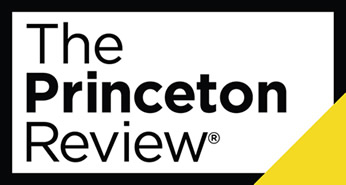
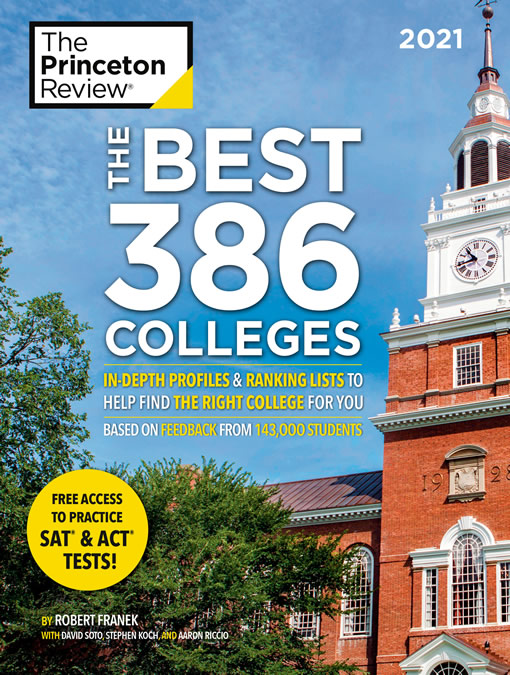
Photo: The Best 386 Colleges: 2021 Edition - The Princeton Review’s 29th Annual “Best Colleges” Guide (August 18, 2020, Penguin Random House).
NEW YORK, April 20, 2021 — The Princeton Review today reported its list of Best Value Colleges for 2021. This project, which the education services company debuted in 2004, annually names the colleges that receive the company’s highest ROI (Return on Investment) ratings.
The ratings are based on analyses that review more than 40 data points. They cover academic offerings, cost/financial aid, career placement services, graduation rates, and student debt, as well as alumni salary levels and job satisfaction.
The Best Value Colleges for 2021 received The Princeton Review’s highest ROI (Return on Investment) ratings.
Of more than 650 schools The Princeton Review surveyed for this year’s project, 209 made the overall Best Value Colleges list for 2021. The list, which is not ranked, includes nine tuition-free schools.
For this project, The Princeton Review also reports seven sub-categories of Best Value Colleges lists. These lists, which are ranked, reveal the top public and the top private schools for each category.
The University of California—Berkeley earned the #1 spot on Top 50 Public Best Value Colleges. Princeton University was #1 on the list of Top 50 Private Best Value Colleges. Both schools are standouts for their stellar academics, career services, and financial aid. The average scholarship grant the University of California—Berkeley awarded to undergrads with need last year was $23,700, bringing the cost of attendance for those students down to $7,700 from the sticker price $31,400. The average grant Princeton University awarded to undergrads with need last year was $53,500, reducing their cost of attendance to $12,300 from the sticker price of $65,800.
“The colleges that we designate as our ‘Best Values’ this year are truly a select group: they comprise only about 1.2% of the four-year undergraduate institutions in the U.S.,” said Rob Franek, editor-in-chief of The Princeton Review. “These exceptional schools differ in many ways, yet they are alike in that all offer outstanding academics and excellent career services. As important to today’s college applicants and their parents: These colleges have a comparatively low sticker price and generous financial aid offerings. We recommend and commend them highly for everything their administrators, faculties, staff, and alumni are doing to educate their students and to guide them to post-college success.”
• Top 50 Best Value Colleges (Public Schools)
• Top 50 Best Value Colleges (Private Schools)
The Princeton Review is a leading tutoring, test prep, and college admission services company. It helps college and graduate-school-bound students achieve their education and career goals through online and in-person courses every year. A network delivers these courses of more than 4,000 teachers and tutors, online resources, and 150 print and digital books published by Penguin Random House. The Princeton Review further explains that its Tutor.com brand is the largest online tutoring service in the U.S. It comprises a community of tutors who have delivered more than 20 million one-to-one tutoring sessions. The Princeton Review (not affiliated with Princeton University) has its headquarters in New York, NY.
Source: The Princeton Review
|GlobalGiants.Com|
Edited & Posted by the Editor | 10:15 AM | View the original post
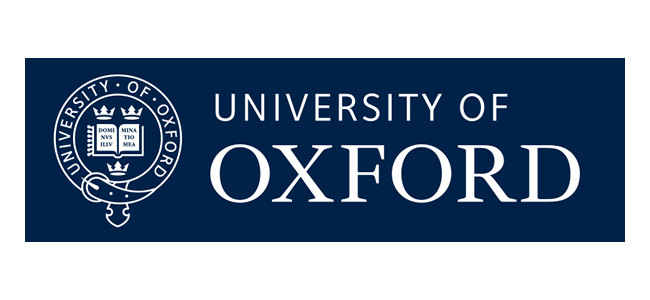
Oxford, April 19, 2021 — Though the COVID-19 pandemic has been active for a year, it is unknown what happens when people who have already had COVID-19 get infected for a second time.
Researchers at the University of Oxford have launched a human challenge trial to look at what kind of immune response can stop people from becoming re-infected. They also want to see how the immune system reacts the second time around. A human challenge trial in medical research is a carefully controlled study that involves purposefully infecting a subject with a pathogen or bug to study the effects of that infection.
The study will take place in two phases with different participants in each stage. The first phase, which will start in April 2021, will establish the lowest dose of virus in approximately 50% of previously naturally infected people and can take hold and start replicating but produce little or no symptoms. In the second phase of the study, expected to begin in summer 2021, all participants will be infected with the standardized dose of the virus, which was established in phase one.
For phase one, up to 64 healthy participants between the ages of 18 - 30 who previously got naturally infected with COVID-19 will be re-exposed to the virus in carefully controlled conditions. The virus used in the study will be the original strain from Wuhan, China. The participants will be quarantined in a specially designed hospital suite for a minimum of 17 days under the care of the research team. They will undergo numerous medical tests, including CT scans of the lungs and MRI scans of the heart. The team would minimize the risks to participants by ensuring that those who take part are completely fit and well and have completely recovered from their first infection with COVID.
Any participants who develop any symptoms will receive medical treatment with the Regeneron monoclonal antibody. They will only be discharged from the quarantine unit when they are no longer infected and not at risk of infecting others. The entire length of the study will be 12 months, including a minimum of eight follow-up appointments after discharge. Participation in the survey is entirely voluntary.
Helen McShane, Professor of Vaccinology at the Department of Paediatrics, University of Oxford and Chief Investigator on the study, said, ‘Challenge studies tell us things that other tasks cannot because, unlike natural infection, they are tightly controlled. When we re-infect these participants, we will know precisely how their immune system has reacted to the first COVID infection, exactly when the second infection occurs, and exactly how much virus they got. As well as enhancing our basic understanding, this may help us design tests that can accurately predict whether people are protected.
‘In phase two, we will explore two different things. First, we will define the baseline immune response in the volunteers very carefully before we infect them. We will then infect them with the dose of virus chosen from the first study and measure how much virus we can detect after infection. We will then be able to understand what kind of immune responses protect against re-infection. Second, we will measure the immune response at several time points after infection to understand the virus’s immune response.
‘A challenge study allows us to make these measurements very precisely because we know exactly when someone is infected. The information from this work will allow us to design better vaccines and treatments and understand if people are protected after having COVID and for how long.’
Wellcome Trust is funding the study. Shobana Balasingam, Vaccines Senior Research Advisor at Wellcome, said, ‘There are still many unknowns surrounding this virus and human infections studies can enable us to learn a lot about Covid-19. This study has the potential to transform our understanding by providing high-quality data on how our immune system responds to a second infection with this virus.
‘The findings could have important implications for how we handle Covid-19 in the future and inform not just vaccine development but also research into the range of effective treatments that are also urgently needed. Keeping up the pace of scientific research and development, through crucial studies such as this, remain the only way we will truly get ahead of this pandemic and bring it under control.’
Source: University of Oxford
|GlobalGiants.Com|
Edited & Posted by the Editor | 2:36 PM | View the original post

Photo: A family of Osprey outside the NASA Kennedy Space Center Vehicle Assembly Building (VAB) in Cape Canaveral, Fla. on Thursday, May 13, 2010. Photo Credit: (NASA/Bill Ingalls).
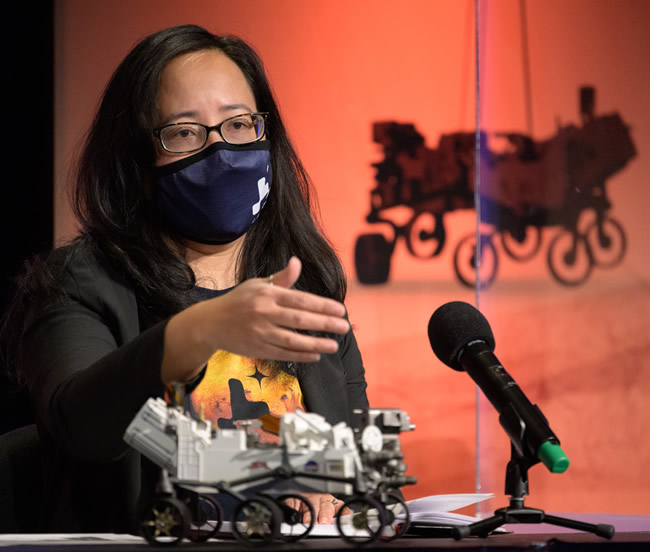
Photo: Mars 2020 Strategic Mission Manager Pauline Hwang gives remarks during a NASA Perseverance rover initial surface checkout briefing, Friday, February 19, 2021, at NASA’s Jet Propulsion Laboratory Pasadena, California. The Perseverance Mars rover landed on Mars Thursday, February 18, 2021. Photo Credit: (NASA/Bill Ingalls).

Photo: The Northrop Grumman Cygnus space freighter after its release from the Canadarm2 robotic arm completing a 93-day cargo mission at the International Space Station. Image Credit: (NASA Johnson).
HUNTSVILLE, Ala., April 16, 2021 — High school and college students from around the U.S. and world have spent the last eight months designing, building, and testing their creations for NASA’s 27th annual Human Exploration Rover Challenge - one of seven NASA Artemis Student Challenges. The winners were announced during a virtual awards ceremony on April 16.
The Human Exploration Rover Challenge (HERC) tasks the U.S. and international student teams to design, engineer, and test a human-powered rover on a course that simulates the terrain found on rocky bodies in the solar system. The groups also must perform mission tasks while negotiating the course, including sample retrievals and spectrographic analysis.
Despite the cancellation of on-site competition activities at the U.S. Space & Rocket Center near NASA’s Marshall Space Flight Center in Huntsville, Alabama, due to the global COVID-19 pandemic, the high school and college teams competed in multiple designs, documentation, and presentation categories, and were recognized for their successful efforts.
“The challenges you faced with this competition go beyond anything we’ve seen before, from designing the wheels and mission tools to executing mission requirements like sample retrievals and deploying instruments,” said Marshall Center Director Jody Singer. “To all of the students who took on these tasks and participated in Rover Challenge, we salute you and congratulate you on your accomplishments.”
“The students had to think outside the box to figure out how to develop these robust vehicles during a global pandemic,” said Miranda Fike, activity lead for the challenge at Marshall. “These members of the Artemis Generation rose to the occasion and delivered their reviews, presentations, designs, and videos without fail.”
NASA presented Awards in nine categories:
• Overall Winner
• High School Division:
1st place: Parish Episcopal School Team 1, Dallas, Texas.
2nd place: Stillwater Area High School, Stillwater, Minnesota.
3rd place: Navonmesh Prasar Foundation, Bhubaneswar, Odisha, India.
• College/University Division:
1st place: Universidad Nacional de Colombia, Bogota, Columbia.
2nd place: Tecnológico de Monterrey, Xochitepec, Mexico.
3rd place: the University of Alabama in Huntsville Team 1.
• Project Review Award
High School Division: Parish Episcopal School Team 1.
College/University Division: Campbell University, Buies Creek, North Carolina.
• Task Challenge Award
High School Division: Liceo Cientifico Dr. Miguel Canela Lázaro, Salcedo, Dominican Republic.
College/University Division: Trine University, Angola, Indiana.
• Safety Award
High School Division: Academy of Arts, Careers, & Technology, Reno, Nevada.
College/University Division: Amity University, Noida, Uttar Pradesh, India.
• Ingenuity Award
High School Division: Stillwater Area High School.
College/University Division: Campbell University, Buies Creek, North Carolina.
• Phoenix Award
High School Division: Academy of Arts, Careers, & Technology.
College/University Division: KIET Group of Institutions, Ghaziabad, Uttar Pradesh, India.
• Videography Award
High School Division: Navonmesh Prasar Foundation, Bhubaneswar, Odisha, India.
College Division: Universidad Catolica Boliviana - La Paz, La Paz, Bolivia.
• STEM Engagement Award
High School Division: Vision Builder Adventures, Charlotte, North Carolina.
College/University Division: Tecnológico de Monterrey.
• Social Media Award
High School Division: Parish Episcopal School Team 2, Dallas, Texas.
College/University Division: Universidad Nacional de Colombia.
For more than 25 years, the annual NASA Human Exploration Rover Challenge and its sponsors have encouraged student teams from the United States and around the world to push the limits of innovation and imagine what it will take to explore the Moon, Mars, and other planets.
The Office of STEM Engagement manages Human Exploration Rover Challenge (HERC) at NASA’s Marshall Space Flight Center in Huntsville. The competition reflects the goals of the Artemis program, which seeks to put the first woman and first person of color on the Moon. NASA’s Office of STEM Engagement uses challenges and competitions to further the agency’s goal of encouraging students to pursue degrees and careers in science, technology, engineering, and mathematics.
SOURCE: NASA
|GlobalGiants.Com|
Edited & Posted by the Editor | 10:39 PM | View the original post

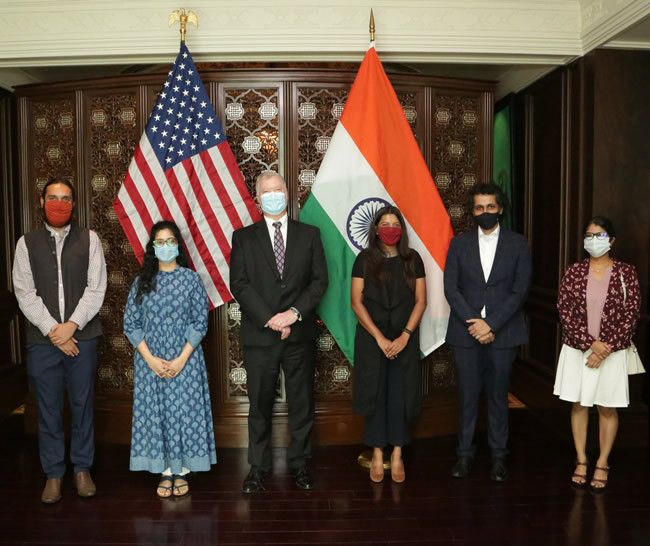
Photo: U.S. Deputy Secretary of State, Stephen E. Biegun, meets with Fulbright Alumni in New Delhi, India, on October 13, 2020. (State Department photo). [File Photo]
New Delhi, April 7, 2021 — United States India Educational Foundation (USIEF), New Delhi, has announced Fulbright Fellowships for Indian citizens for the academic year 2022-2023 in the following categories:
Student awards to pursue a master’s degree or attend a U.S. university as a visiting student researcher.
Scholars and teacher awards for academics, teachers, and professionals to teach or conduct research in the U.S.
Professional development programs for university administrators to develop leadership and specialized skills.
“Selection committees would look to identify talented individuals whose projects are relevant to India and the United States. The committees would seek candidates who demonstrate the potential to be effective cultural ambassadors,” USIEF said.
• 2022-2023 Fulbright-Nehru Master’s Fellowships:
The Fulbright-Nehru Master’s Fellowships are designed for outstanding Indians to pursue a master’s degree program at select U.S. colleges and universities in the areas of Arts and Culture Management including Heritage Conservation and Museum Studies; Economics; Environmental Science/Studies; Higher Education Administration; International Affairs; International Legal Studies; Journalism and Mass Communication; Public Administration; Public Health; Urban and Regional Planning; and Women’s Studies/Gender Studies.
These fellowships are for highly motivated individuals who demonstrate leadership qualities, have completed the equivalent of a U.S. bachelor’s degree, have at least three years of professional work experience, and commit to return and contribute to their communities. The fellowships are for one to two years.
• 2022-2023 Fulbright-Nehru Doctoral Research Fellowships:
The Fulbright-Nehru Doctoral Research Fellowships for Indian scholars registered for a Ph.D. at an Indian institution. These fellowships are for six to nine months.
Fellowships are available in the following fields only: Agricultural Sciences; Anthropology; Bioengineering; Chemistry; Computer Science (including, but not limited to, cybersecurity, digital economy, quantum computing, artificial intelligence, machine learning, and big data analytics); Economics; Education Policy and Planning; Energy Studies; Geography (including GIS and Geology); History; Language and Literature; Materials Science (with emphasis on environmental applications); Mathematical Sciences; Neuroscience; Performing Arts; Physics; Political Science (including, but not limited to, International Security and Strategic Studies); Public Health; Public Policy; Sociology; Urban and Regional Planning (with emphasis on smart cities and waste management); Visual Arts; and Women’s and Gender Studies.
• 2022-2023 Fulbright-Nehru Academic and Professional Excellence Fellowships:
The Fulbright-Nehru Academic and Professional Excellence Fellowships aim to provide Indian faculty, researchers, and professionals the opportunity to teach, conduct research, or carry out a combination of teaching and research at a U.S. institution. Depending on the U.S. host institution, it is likely that the grantee may contribute towards developing a curriculum and conducting workshops and seminars. These fellowships are for four to nine months.
Fellowships are available in the following fields only: Agricultural Sciences; Anthropology; Bioengineering; Chemistry; Computer Science (including, but not limited to, cybersecurity, digital economy, quantum computing, artificial intelligence, machine learning, and big data analytics); Economics; Education Policy and Planning; Energy Studies; Geography (including GIS and Geology); History; Language and Literature; Materials Science (with emphasis on environmental applications); Mathematical Sciences; Neuroscience; Performing Arts; Physics; Political Science (including, but not limited to, International Security and Strategic Studies); Public Health; Public Policy; Sociology; Urban and Regional Planning (with emphasis on smart cities and waste management); Visual Arts; and Women’s and Gender Studies.
• 2022-2023 Fulbright-Nehru International Education Administrators Seminar:
The Fulbright-Nehru International Education Administrators Seminar (IEAS) aims to provide Indian college and university administrators the opportunity to familiarize themselves with the U.S. higher education system.
The two-week U.S. visit in October/November 2022 will enable participants to learn about various facets of U.S. higher education, including the types of institutions, accreditation, curriculum development, fund-raising, student services, and international education on U.S. campuses, as well as share knowledge on Indian higher education. Topics addressed during visits and meetings at select campuses and organizations will also include research collaborations, faculty and student exchanges, and study abroad.
This seminar is for Indian college and university administrators with at least two years of international program development and management experience at their institutions in India.
Applicants must be middle to senior-level college or university administrators —
Such as Vice-Chancellors, Deans, Directors of International Centres, Foreign Student Advisors, and Registrars.
They should have substantial responsibility for enhancing their institutions’ international dimension. They should be motivated to build their faculty and students’ capacity through international collaborations, exchange, and innovative curricular design.
The United States government leads the Fulbright Program in partnership with more than 160 countries worldwide. The program offers international educational and cultural exchange for passionate and accomplished students, scholars, artists, teachers, and specialists of all backgrounds to study, teach, or pursue meaningful research and professional projects.
Sources: United States India Educational Foundation (USIEF), New Delhi; U.S. Department of State.
|GlobalGiants.Com|
Edited & Posted by the Editor | 5:26 AM | View the original post
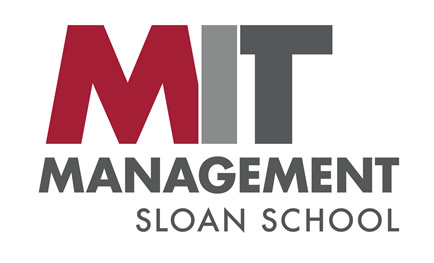
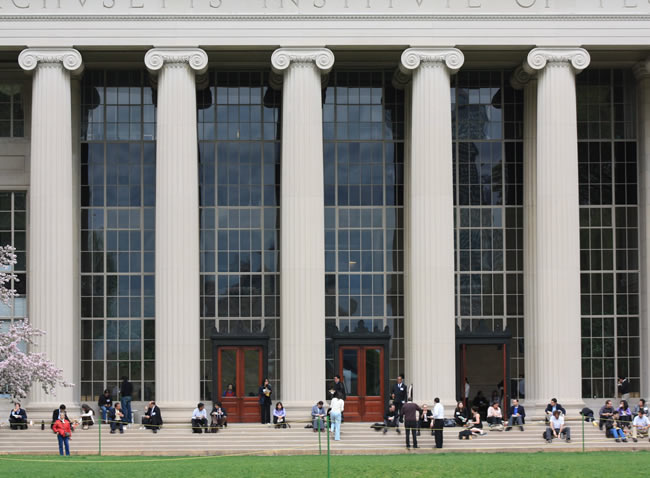
Photo: Massachusetts Institute of Technology (MIT) Building. Image credit: Ulrick.
CAMBRIDGE, Mass., April 5, 2021— MIT Sloan School of Management recently announced that Senior Lecturer Chintan Vaishnav was appointed to serve as mission director of India’s Atal Innovation Mission. The Mission, housed at NITI Aayog, is the Government of India’s flagship initiative to create and promote a culture of innovation and entrepreneurship.
Vaishnav says, “At the highest level, the work of building a culture of innovation is one of engaging creativity in the service of humankind. India is a place of limitless creative potential. I am excited for the opportunity to help harness this potential.”
Over the past six years, Vaishnav has worked and lived in rural to very rural India for a total of 18 months, researching challenges related to agriculture, water, and livelihood. His research has produced solutions such as on-farm soil nutrient management and water quality testing and purification that bring world-class science and technology to underserved communities at an affordable price. His water work has turned into an early-stage startup that enables communities to keep their water safe.
“This experience has taught me how to innovate for the developing world with rigor and relevance. I hope to bring this culture to my new position as mission director,” he says.
A member of the MIT Tata Center for Technology and Design founding team, Vaishnav also designed and taught a graduate-level course on Technology, Design, and Entrepreneurship for Emerging Community. The system has trained 200 graduate students from 18 different MIT departments and has guided a total of 200,000 hours of fieldwork in India, Nepal, and Africa. The work has produced 45 patents, 12 commercial licenses, and 11 startups, some of which he advises.
Vaishnav says, “This experience has taught me how to engage young minds in solving some of our most pressing challenges in a hands-on, action-oriented way. I hope to create similar engagement as mission director.”
Before MIT, Vaishnav worked at Bell Labs, designing innovative products for high-speed networks. This work led to his Ph.D. research on how regulators can balance compliance and innovation as new technologies disrupt the traditionally regulated ones in the Internet space. Since then, Vaishnav has advised the Office of Science and Technology Policy (OSTP) at the White House, the Federal Communications Commission (FCC), the Telecom Regulatory Authority of India (TRAI). He has also worked with several large communications companies that are members of MIT’s Communications Futures Program.
Vaishnav holds a Master’s degree in Technology and Policy and a Ph.D. in Engineering Systems from MIT. He joined the MIT Sloan faculty as a senior lecturer after finishing his Ph.D. In addition to his degrees from MIT, he holds a BA in Indian Classical Music from Gandharva Mahavidyalaya, India.
“My new assignment speaks directly to MIT Sloan’s Mission of developing leaders who make a positive difference in the world. MIT Sloan has been a global leader in innovation and entrepreneurship, and this opportunity helps take this work to a nation of 1.3 billion people via the Atal Innovation Mission,” says Vaishnav, who will be on a two-year leave from MIT to serve as Mission Director.
Source: MIT Sloan School of Management
|GlobalGiants.Com|
Edited & Posted by the Editor | 12:35 PM | View the original post
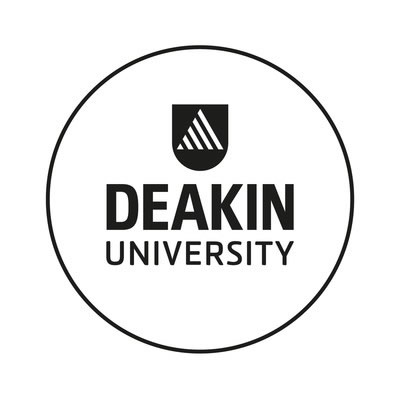

Photo: A building at Deakin University Campus, Australia. Image credit: Kirsten Varela.
NEW DELHI, April 4, 2021 — Deakin University, Australia, has announced its Vice-Chancellor’s Meritorious Scholarship program 2021, which offers a 100% tuition fee waiver to six high-achieving Indian students for the entire duration of their studies at the university at any level.
This announcement is one of many that the university has made over the last year to support the international student community during these challenging times, including a large part of Indian students. These scholarships announced by the university are beyond a bursary of 30% to all students enrolling in the online to on-campus pathway program as the travel restrictions are prevalent due to the pandemic.
Deakin University remains committed to fostering engagement with India and ensuring the fulfillment of bright Indian students’ aspirations of an international education experience. The Vice-Chancellor’s Meritorious Scholarship Program is a part of an initiative of Deakin named ‘Changing Lives,’ which recognizes deserving students with consistently high academic performance with a potential to make a leading contribution to the university and their community back in India.
While announcing the scholarships, Professor Iain Martin, President, and Vice-Chancellor, Deakin University, emphasized the importance of international education and said, “International education, particularly in an evolving global economy, is a significant part of a student’s holistic development. The Vice-Chancellor’s Meritorious Scholarships are a wonderful opportunity for those deserving students to earn an international degree that will empower them to become a global talent and expand their horizons.”
Ms. Ravneet Pawha, Deputy Vice President (Global) and CEO (South Asia), Deakin University, said, “Deakin University has a deep history of collaboration with India across the industry, government, and research.”
Applications for the scholarship are open for students applying in July and November intake this year. The Deakin Vice-Chancellor’s Meritorious Scholarship Program selection is a rigorous process consisting of application review, referee recommendations, and interviews/presentations, including a panel interview with neutral representatives from academia and the industry.
“I think it (Vice-Chancellor’s 100% Meritorious Scholarship) is amazing not just because the tuition is paid, but I think the most interesting part of this for me was being a part of the Vice-Chancellor’s Professional Excellence Program, which empowered me to achieve beyond expectations and be ready for the careers of the future,” said Rupa Subramanian, a recipient of the Vice-Chancellor’s Meritorious Scholar 2017 award at Deakin University.
Shristi Ostwal, CBSE national boxing champion and a recipient of the Deakin University Vice-Chancellor’s Meritorious Scholar 2020 award, shared, “I have always wanted to give back to society by providing psychological aid to underprivileged people across the globe. The Vice-Chancellor’s 100% Meritorious Scholarship allowed me to gain skills and knowledge at par with the global standards. I commenced my studies online last year due to travel restrictions, and the flexibility of online learning has allowed me to balance my passion for psychology and sports.”
Deakin University also offers other academic merit-based bursaries and scholarships for Indian students, including a 25% Merit Scholarship and a 20% Bursary for studies onshore in Australia.
Established in 1974, Deakin University is one of Australia’s leading tertiary education providers.
According to Deakin University, it is celebrating 27 years of engagement in India as it was the first international education provider to set up India’s office in 1994. It is currently the most engaged Australian Provider across education, training, research, capacity building, and consultancy initiatives with academia, industry, and the government. Deakin University has established exclusive partnerships in India to transform education and research into beneficial community outcomes, produce world-class graduates, and contribute to the communities’ growth and sustainability.
Source: Deakin University, Australia
|GlobalGiants.Com|
Virtual Tour: Deakin’s Burwood campus.
Edited & Posted by the Editor | 2:46 PM | View the original post
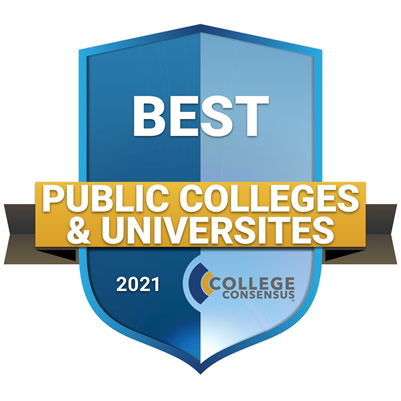

Photo: A building at the University of Michigan, Ann Arbor. Image credit: Corey Seeman.
HILLSBOROUGH, N.C., April 1, 2021 — College Consensus, a unique college rating website that aggregates publisher rankings and student reviews, has published its ranking the Best Public Colleges Universities for 2021 and the Best National Research Universities for 2021 in the USA.
Public colleges & universities are a vital part of higher education in America. Public schools generally provide a more affordable and accessible option for students than private colleges, helping to democratize higher education and build a more broadly educated citizenship.
• College Consensus 100 Best Public Colleges and Universities 2021
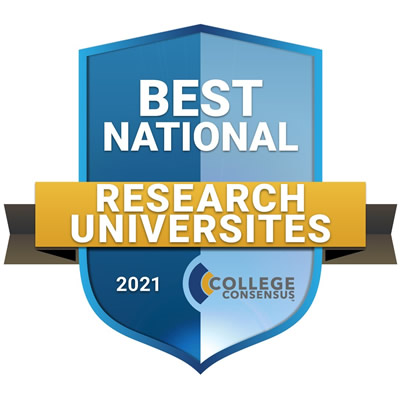
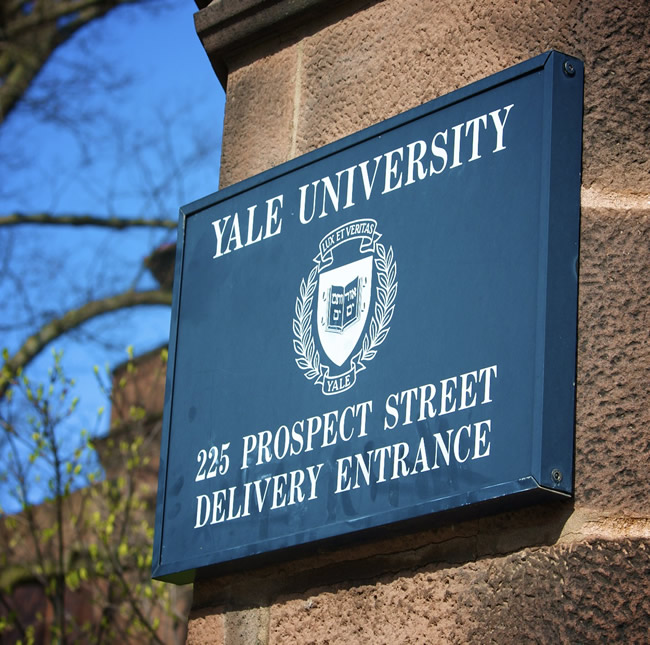
Photo: A signage at Yale University, New Haven, Connecticut. Image credit: John.
The top research universities include some of the most prestigious names in higher education. Students who attend these schools have access to today’s leading thinkers and practitioners.
“We define national research universities as institutions that draw a student body from across the U.S. and world, rather than a primarily regional population, College Consensus clarified. “Carnegie Foundation has recognized all these schools and classified them according to the Carnegie tiered classification.”
According to College Consensus, it uses an aggregate scoring system that combines data across the internet. The Publisher Rating averages scores from U.S. News & World Report, The Wall Street Journal, and WalletHub. The Student Rating combines scores from sites like Unigo, My Plan, and Students Review. The Publisher and Student ratings combined make up a school’s Consensus score.
• College Consensus 100 Best National Research Universities 2021
Source: College Consensus
|GlobalGiants.Com|
Edited & Posted by the Editor | 9:25 AM | View the original post
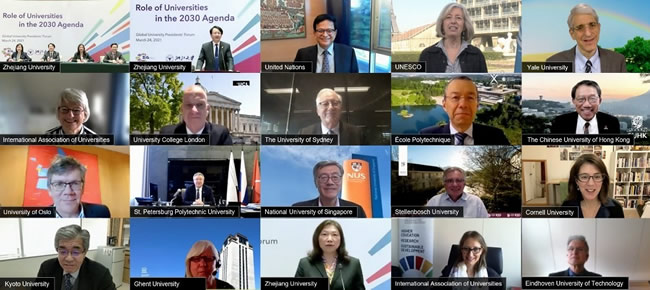
Photo: University presidents from 30 countries unite to announce action on climate change. March 30, 2021. Image provided by Zhejiang University.
HANGZHOU, China, March 31, 2021 — On March 30, 2021, university presidents from 30 countries united for the first time to announce action on climate change. They signed a Joint Statement of Global University Leaders 2030 Agenda for Sustainable Development. UN officials witnessed the event.
That first global online forum for university leaders was hosted by Zhejiang University in China. Presidents from 56 universities across six continents committed to working together to meet sustainable development goals (SDGs).
The initiative includes five key aspects all signatories have agreed:
Among the top 50 universities on the QS World University Rankings, 80% have developed their university-level sustainability strategy, plans, or operational activities. According to Zhaohui Wu, President of Zhejiang University (ZJU), the forum’s purpose was to bring together leaders from some of the best universities to share these visions and best practices on SDGs and explore opportunities for potential cooperation in safeguarding a sustainable future.
With less than nine years to meet targets and the pandemic slowing progress, the forum allowed leaders to share essential expertise on how to scale up efforts to deliver on the 2030 Agenda. The event gave academics a platform to clearly outline their action plans for human-oriented, innovation-driven, and down-to-earth sustainable development.
UN officials, including Nikhil Seth, UN Assistant Secretary-General, and Stefania Giannini, UNESCO Assistant Director-General for Education, joined the speakers’ panel. The speakers included Peter Salovey, President of Yale University; Pam Fredman, President of the International Association of Universities; and Eric Labaye, President of Ecole Polytechnique.
Speakers reinforced how universities can work together to harness technology’s power to expand access to quality education. They also discussed how they should draw on their academic ecosystem to support scientific collaborations and knowledge transfer across disciplines.
Universities that have signed the initiative include:
Nikhil Seth, Assistant Secretary-General of the United Nations, said: “SDGs belong to each of us, and everything we make impacts on the achievement, in the aggregate, to SDG achievement.”
Stefania Giannini, Assistant Director-General for Education at UNESCO, said: “The organization of the forum is timely, especially given the increasingly pivotal role of universities not only in fostering understanding and knowledge but also in contributing to building knowledge-based societies.”
Pam Fredman, President of the International Association of Universities, Paris, said: “Cooperation and cohesion among Higher Education Institutions and organizations will foster knowledge development and sharing.”
Zhaohui Wu, President of Zhejiang University (ZJU), said: “The ‘Global ZJU for Social Good’ plan establishes five objectives and associated actions to improve our sustainability-related education, research, and practices within the ZJU community and among other stakeholders in China and beyond. We aim to advocate for responsible sustainability, educate for a sustainable future, advance scientific collaborations, partner for collective well-being, and create greener campuses.”
Zhejiang University (ZJU) is an elite university located in Hangzhou, China. Founded in 1897, Zhejiang University is one of China’s oldest and prestigious institutions of higher education.
Source: Zhejiang University
|GlobalGiants.Com|
Edited & Posted by the Editor | 9:22 AM | View the original post

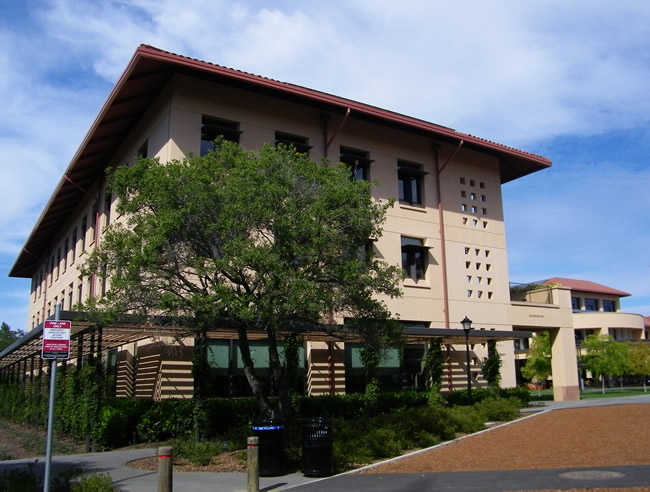
Photo: Knight Management Center, Stanford Graduate School of Business, Stanford, California. Image Credit: Corey Seeman.
WASHINGTON, March 30, 2021 — US News & World Report has published the 2022 Best Graduate Schools. The rankings evaluate programs across several disciplines - including business, education, engineering, law, medicine, and nursing - for students interested in furthering their education beyond college.
US News added several standalone medical school rankings, using data from the Robert Graham Center, a division of the American Academy of Family Physicians.
These rankings display data on alumni’s various practice areas - specifically, the percentage of graduates practicing in primary care specialties, rural areas, and medically underserved areas.
US News has added two new student debt indicators to the overall Best Law Schools methodology: The average law school debt incurred by law school graduates and the percentage of law graduates who incurred debt.
“Trying to decide where to go to grad school can be overwhelming under normal circumstances, let alone during a pandemic,” said Anita Narayan, managing editor of Education at US News. “Along with our articles featuring expert advice on the admissions process, the Best Graduate Schools rankings provide helpful data to make that search more manageable for prospective students.”
Best Business Schools: Full-Time MBA
Stanford University is the No. 1 full-time MBA program, followed by the University of Pennsylvania’s Wharton School at No. 2. The University of Chicago’s Booth School of Business rounds out the top three.
Best Law Schools
The top school among Best Law Schools is Yale University. Stanford and Harvard University come in at No. 2 and No. 3, respectively.
Best Medical Schools: Research
Harvard maintains the top spot among Best Medical Schools: Research, while New York University’s Grossman School of Medicine moves up to No. 2 this year. Duke University also moves up in the rankings to No. 3.
The University of Pennsylvania moves up to join Harvard in a tie for the top spot among education programs. MIT maintains its place as No. 1 in engineering, while Johns Hopkins is No. 1 among nursing master’s programs.
Alongside the six most prominent disciplines, US News has updated other graduate program rankings this year. These include criminology, economics, English, history, library and information studies, political science, public affairs, public health, and sociology.
2022 Best Graduate Schools Rankings
• Best 100 Business Schools: Full-Time MBA
• Best 100 Law Schools
• Best 5 Medical Schools: Research
Source: US News & World Report
|GlobalGiants.Com|
Edited & Posted by the Editor | 5:16 AM | View the original post
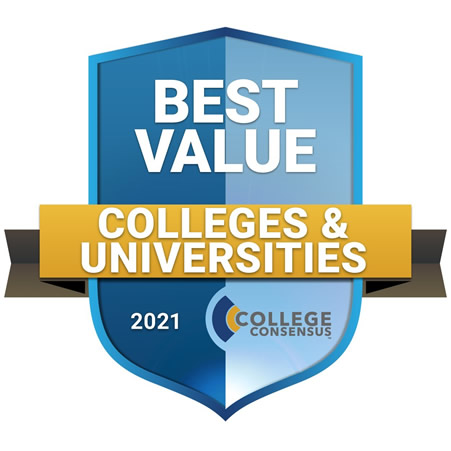
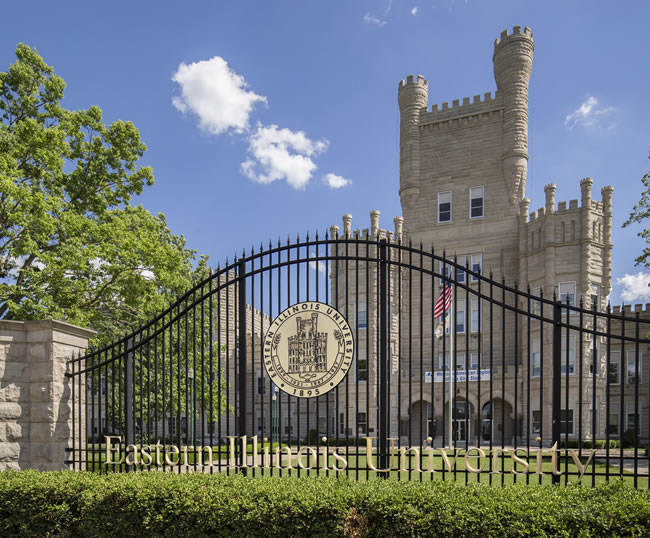
Photo: The gate in front of Old Main Building, Eastern Illinois University, Charleston, Illinois. Image credit: Travis Stansel / Illinois Public Media.
HILLSBOROUGH, N.C., March 30, 2021 — College Consensus, a unique college rating website that aggregates publisher rankings and student reviews, has published its ranking of the Best Value U.S. Colleges and Universities for 2021.
“Student debt represents the second-largest consumer debt class in the U.S. today. It’s no surprise that many prospective college students are looking to avoid a lifetime of debt without compromising education quality. We have ranked the Best Value Colleges and Universities for 2021 to guide students looking for quality and affordability,” College Consensus said.
“When it comes to college, affordability isn’t cheap. Keeping costs down, and student loan debt low is every student’s worry,” the ranking agency remarked.
“In the age of rapidly rising tuition, college costs have risen far faster than the inflation rate in the 21st century and even faster than financial aid. Affordability is no joke. With our 2021 Consensus Ranking of the 100 Best Value Colleges & Universities, College Consensus is lighting up the way to a college education students can afford,” the publisher elaborated.
• Top 50 Schools in the Best Value U.S. Colleges and Universities ranking for 2021
Source: College Consensus
|GlobalGiants.Com|
Edited & Posted by the Editor | 11:42 PM | View the original post
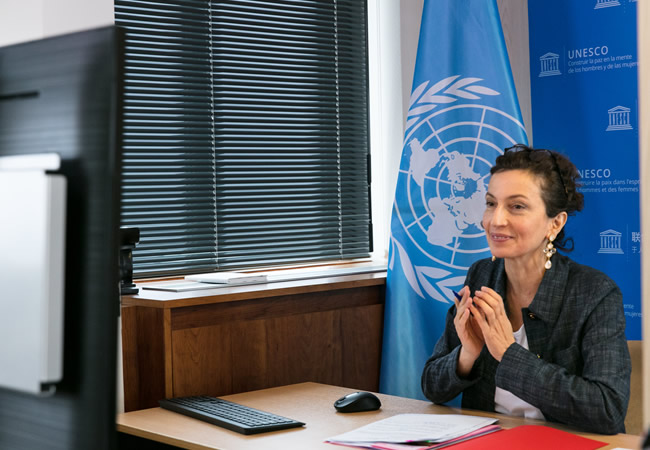
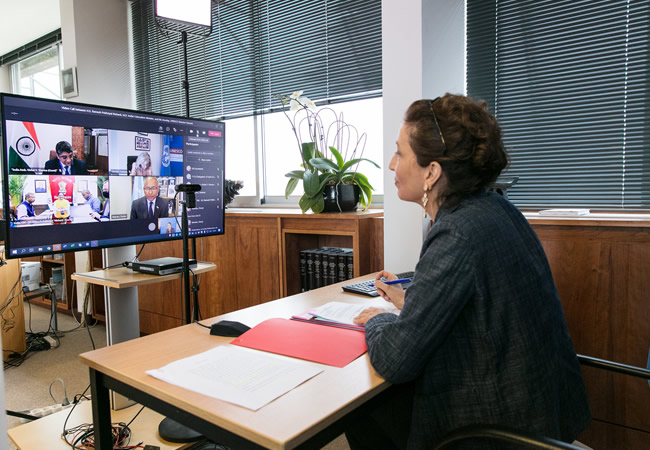
Photos: UNESCO Headquarters, Paris. March 25, 2021. Director-General of UNESCO Ms. Audrey Azoulay talks with Mr. Ramesh Pokhriyal ‘Nishank,’ Minister of Education of India, through a video conference. Images provided by & copyright © UNESCO / Fabrice GENTILE.
• New Delhi / Paris, March 25, 2021 —India’s Education Minister, Ramesh Pokhriyal ‘Nishank’, held a virtual meeting with Director-General UNESCO, Ms. Audrey Azoulay, today. They discussed critical issues of mutual importance, including National Education Policy and India’s response to the COVID Pandemic.
Mr. Pokhriyal said that the Ministry of Education Government of India has ensured that education reaches even the last child in the country’s remotest part.
The Minister also mentioned that competitive entrance exams for almost 2.3 million students, the most extensive entrance examinations in the world, were conducted successfully and safely during the covid pandemic.
Minister emphasized that the Government of India National Education Policy 2020 aims to transform the educational ecosystem for over 340 million students of the country. It is based on the foundations of Equality, Equity, Access, Affordability, and Accountability. It seeks to fulfill the vision of making India a ‘global superpower of knowledge’ and the ‘mission to create a ‘global citizen.’
Director-General of UNESCO Ms. Audrey Azoulay appreciated the response of the Indian Government in mitigating the challenges of covid and ensuring continuity of education during the covid pandemic by providing education to the students through different mediums of TV, Radio, and online to the last student of the country. She remarked that India’s response to covid was remarkable in terms of scale and diversity. She requested the Union Minister share the experiences and best practices relating to India’s education sector with UNESCO member states. She congratulated the Minister for bringing out the New Education policy, which is visionary and capable of transforming the education sector. On behalf of UNSECO, she extended full support in its implementation.
• New Delhi, March 23, 2021 — India’s Education Ministry said today that the National Education Policy 2020 envisions an education system rooted in Indian ethos that contributes directly to sustainably transforming India into an equitable and vibrant knowledge society.
“The new education policy aims to provide high-quality education, innovation, and research, thereby making India a global knowledge superpower. The Policy envisages that the institutions’ curriculum and pedagogy must develop a deep sense of respect towards the Fundamental Duties and Constitutional values, bonding with one’s country, and conscious awareness of one’s roles and responsibilities in a changing world.
“The Policy’s vision is to instill a deep-rooted pride in being Indian, not only in thought but also in spirit, intellect, and deeds. It aims to develop knowledge, skills, values, and dispositions that support responsible commitment to human rights, sustainable development, and global well-being, thereby reflecting a truly global citizen.
“National Education Policy 2020 envisions a comprehensive approach to transforming India’s quality and quantity of research. It includes inter-alia promoting research in universities, the inclusion of research and internships in the undergraduate curriculum, faculty career management systems that give due weightage to study, and the governance and regulatory changes that encourage an environment of research and innovation. These aspects are highly critical for developing a research mindset in the country.
“To build on these various elements in a synergistic manner and thereby truly grow and catalyze quality research in the nation, this Policy envisions establishing a National Research Foundation (NRF). The overarching goal of the NRF would be to enable a culture of research to permeate through the universities. The NRF would provide a reliable base of merit-based but equitable peer-reviewed research funding, helping develop the country’s research culture. Through appropriate incentives for and recognition of outstanding research, it would undertake significant initiatives to seed and grow research at State Universities and other public institutions where research capability is currently limited.”
India’s Minister for Education, Ramesh Pokhriyal ‘Nishank’, gave this information through a statement in the Indian Parliament.
Source: Ministry of Education, Government of India.
|GlobalGiants.Com|
Edited & Posted by the Editor | 8:50 AM | View the original post
• Candidates who have qualified for the Chartered Accountant (CA), Company Secretary (CS), or Cost and Works Accountant (ICWA) exams will now be treated equivalent to postgraduate degree holders, according to the University Grants Commission (UGC).
• UGC made this decision on the behest of the Institute of Chartered Accountants of India (ICAI), the Institute of Company Secretaries of India (ICSI), and the Institute of Cost Accountants of India to help CA, CS, and ICWA qualification holders improve their mobility.
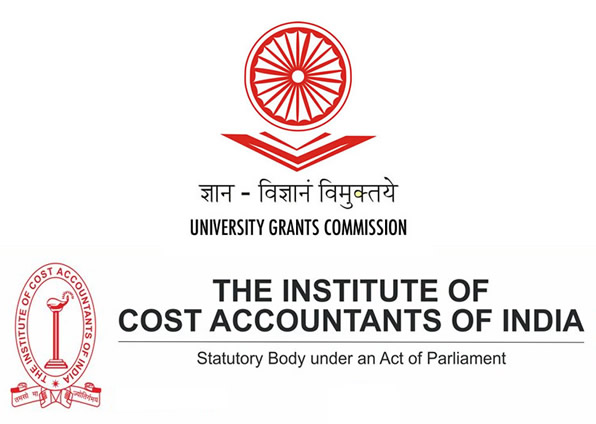
New Delhi, March 19, 2021 — To increase their academic mobility, the University Grants Commission has concluded that those qualifying the Chartered Accountant (CA), Company Secretary (CS), or Cost and Works Accountant (ICWA) exams are equivalent to postgraduate degree holders.
UGC said that the Institute of Chartered Accountants of India (ICAI), the Institute of Company Secretaries of India (ICSI), and the Institute of Cost Accountants of India had requested it to consider the qualifications they award (CA, CS, and ICWA) as equivalent to post-graduation degrees.
To consider this, the UGC constituted an expert committee. The commission accepted the expert committee’s recommendation and resolved that CA, CS, and ICWA qualifications be considered equivalent to PG degrees, the UGC said in its official order.
The Institute of Company Secretaries of India (ICSI) said this decision would offer more scope to its professionals worldwide. “This recognition will leverage the company secretary profession across the globe, allowing the members of the institute to pursue Ph.D. in Commerce and Allied Disciplines,” the Institute said in a release.
Nagendra D Rao, President of ICSI, said, “This recognition will open up another world of opportunities for company secretaries. Such recognitions reaffirm the fact that with the increasing focus on good governance, the demand for Company Secretaries, as skilled professionals, is both ubiquitous and inevitable.”
Nihar N Jambusaria, President of the Institute of Chartered Accountants of India (ICAI), said that this equivalence to Post Graduate Degree would open up the International market for various job avenues for ICAI qualification holders. It would aid those seeking professional opportunities abroad.”
Biswarup Basu, President of the Institute of Cost Accountants of India, remarked that this recognition would facilitate widespread international acceptance of its Cost & Management Accounting qualification.
In their presentations to the UGC, the Chartered Accountants (CA) and the Company Secretaries (CS) bodies had argued that students who have cleared CA and CS exams have already attained a high level of education. At the same time, the Cost Accountants body had emphasized that compared to M.Com and MBA, ICWA students’ curriculum is much more elaborate.
The Institute of Cost Accountants of India, established in 1944, was set up under an Act of Parliament in 1959 by India’s Government as a statutory professional body to impart education and training in Cost and Management Accountancy. The Institute is the 2nd most significant Cost & Management Accounting body globally. It is a founder member of the International Federation of Accountants (IFAC).
Sources: UGC, Institute of Cost Accountants of India, Institute of Chartered Accountants of India, Institute of Company Secretaries of India.
|GlobalGiants.Com|
— The editor is an alumnus of the Institute of Cost Accountants of India.
Edited & Posted by the Editor | 10:52 AM | View the original post
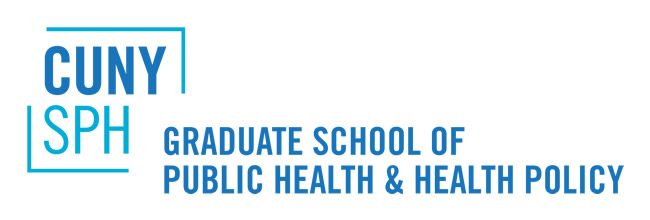
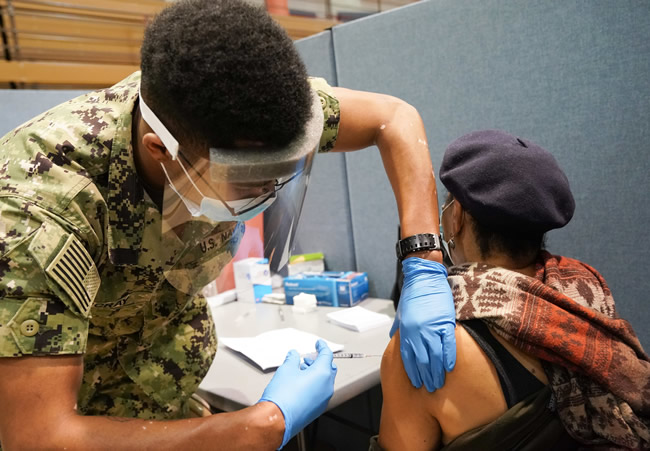
Photo: Hospital Corpsmen providing vaccinations to New York City civilians as Governor Andrew M. Cuomo announces the opening of State-FEMA mass vaccination site at York College / CUNY in Queens, New York. February 24, 2021. (Photo Don Pollard // Office of Governor Andrew M. Cuomo). Image provided by Navy Medicine.
NEW YORK, March 12, 2021 — At its 2021 Annual Meeting this month, the Association of Schools and Programs of Public Health (ASPPH) will present the CUNY Graduate School of Public Health and Health Policy (CUNY SPH) with the Harrison C. Spencer Award for Outstanding Community Service.
The ASPPH Harrison C. Spencer Award for Outstanding Community Service acknowledges Dr. Spencer, who had a long-standing commitment to social justice principles focusing on community engagement. This annual award is given to an ASPPH-member and accredited school or public health program that demonstrates a significant institutional commitment to addressing community needs through education, practice, and research.
CUNY SPH said that community engagement is integral to its vision of promoting health and social justice in New York City and across the globe through innovation and excellence in education, research, and service in public health. “We embrace a multifaceted concept of ‘community’ that includes half a million CUNY students at its center, exceeding a million when including the students’ families and close social circle. The school engages with its immediate neighborhood in Harlem, broader New York City public health community, government agencies, health care institutions, and academia,” the institution elaborated.
“We are delighted and humbled by the news of this award,” said CUNY SPH Dean Ayman El-Mohandes. “We look forward to continuing our work to partner with our community in New York City and beyond, to advance social justice, and to improve health outcomes for all.”
The CUNY Graduate School of Public Health & Health Policy (commonly known as the CUNY School of Public Health, or CUNY SPH) is a public research and professional college within the City University of New York (CUNY) system of colleges.
Source: CUNY SPH
|GlobalGiants.Com|
Edited & Posted by the Editor | 4:34 AM | View the original post
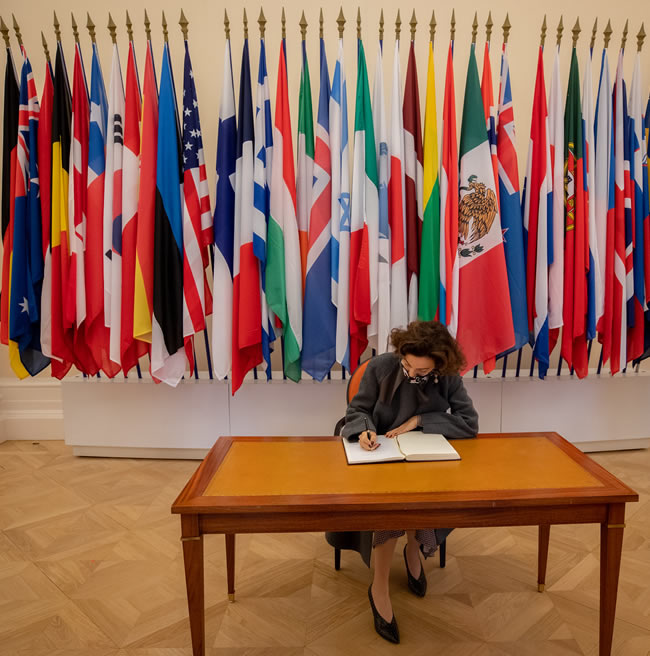
Photo: UNESCO Headquarters, Paris. Commemoration of the 60th anniversary of the signing of the OECD Convention. Image provided by & copyright © UNESCO/Christelle ALIX. [File Photo]
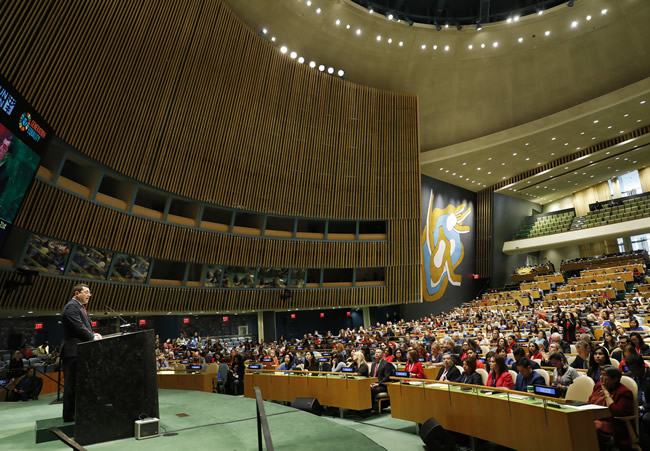
Photo: Scenes from the United Nations Observance of International Women’s Day 2020, held in the UN General Assembly Hall at UN Headquarters in New York on 6 March 2020. Image provided by & copyright © UN Women/Ryan Brown. [File Photo]
Paris, France, March 8, 2021 — On International Women’s Day, UNESCO launched the call for nominations for the 2021 UNESCO Award for Girls’ and Women’s Education. The Prize awards US$ 50,000 annually to two laureates making outstanding efforts in favor of girls’ and women’s education.
Amid the COVID-19 pandemic and in a context where girls and women have been disproportionately impacted by nationwide school closures, ensuring that girls and women continue learning must be a priority. UNESCO estimates that over 11 million girls and young women may not return to school following the pandemic’s impact. About 128 million girls were already out of school before the pandemic, UNESCO said.
The Prize is more significant in these challenging times than ever before. Highlighting innovations that can help us foster an equal future is key to responding to global challenges around girls’ and women’s education, UNESCO added.
OFFICIAL INVITATION
“Governments of the UNESCO Member States and non-governmental organizations (NGOs) in official partnership with UNESCO are now invited to nominate up to three individuals, institutions, or organizations who have made substantial, innovative contributions in favor of girls and women’s education.
“Interested candidates are invited to contact their country’s National Commission for UNESCO/Permanent Delegation to UNESCO or an NGO in official partnership with UNESCO for more information.
“Nominations must meet the eligibility and selection criteria set by the Prize. Nominated projects must be established and running for at least two years, show potential to be replicable and scalable, and contribute to one or more of the priority areas of the Prize.
“An independent International Jury of five experts will assess nominations based on the project’s potential for impact, innovation, and sustainability.
“Deadline for submissions is 26 May 2021 (midnight, Paris time).
“Nominations must be submitted in English or French via an online platform, accessible only to National Commissions for UNESCO/Permanent Delegations to UNESCO and NGOs in official partnership with UNESCO.
“Based on the recommendations of the Jury, the Director-General of UNESCO will announce the 2021 laureates who will receive the award on 11 October 2021 as part of International Day of the Girl Child celebrations.”
Source: UNESCO
|GlobalGiants.Com|
Edited & Posted by the Editor | 8:27 AM | View the original post
 |
 |
